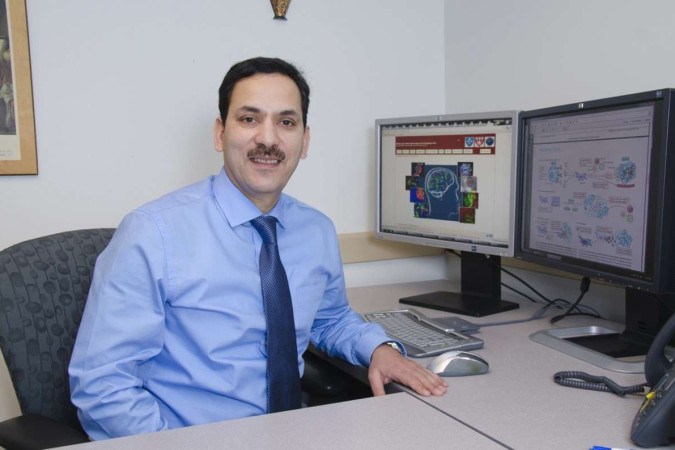Posted on 01/05/2023 06:00
(Credit: Smita Jacob/Disclosure)
Researchers at Brigham and Women’s Hospital in the United States have developed a vaccine that kills glioblastoma cells and prevents recurrence of brain cancer, for which there is no cure yet. In an article published in the journal Science Translational Medicine, the team in Khalid Shah’s lab describe a cell therapy that kills off tumors and stimulates immunity over the long term, training the immune system to prevent disease recurrence. In a mouse model of advanced cancer, the vaccine produced promising results.
“Our team followed a simple idea: take cancer cells and turn them into killers and vaccines for cancer,” said Khalid Shah, director of the Center for Stem Cells and Translational Immunotherapy at Brigham and Women’s Health. “Using genetic engineering, we redirect cancer cells to develop a treatment that kills cancer cells and stimulates the immune system to destroy primary tumors and prevent cancer.”
Shah’s approach differs from other oncology immunotherapies. Instead of using deactivated cancer cells, the team reused live structures with an unusual advantage. Like homing pigeons returning to their roost, they travel long distances through the brain to return to the site of other cancer cells.
Gene editing
Taking advantage of this unique property, Shah’s team engineered living tumor cells with the gene-editing tool CRISPR-Cas9, and manipulated them to edit out the tumour-killing factor. Furthermore, the constructs were developed to express factors that would make them easier to detect by the immune system, preparing defenses for a long-term anti-tumor response.
The team tested the therapeutic tumor cells (ThTC) in different strains of mice. The researchers also built a two-layer safety switch into the cancer cell, which when activated kills ThTCs if needed. The dual-action treatment was safe, feasible, and effective in the models.
While more testing and development is needed, the scientists chose this animal model specifically and used human cells to facilitate the path of translating their findings into patient settings. “In all the work we do, even when it’s very technical, we never lose sight of the patient,” Shah said. “Our goal is to take an innovative and translatable approach so that we can develop a therapeutic vaccine for cancer that can have a lasting impact on medicine.”

“Wannabe internet buff. Future teen idol. Hardcore zombie guru. Gamer. Avid creator. Entrepreneur. Bacon ninja.”

